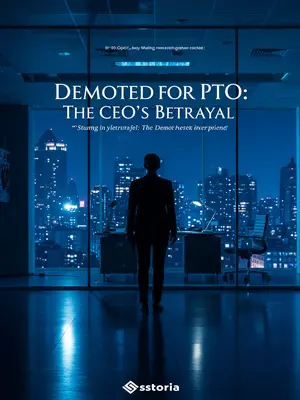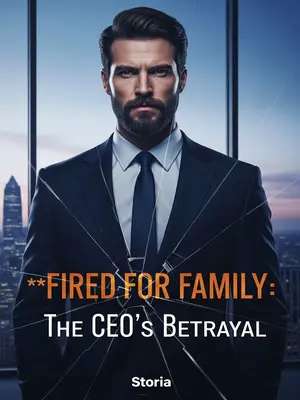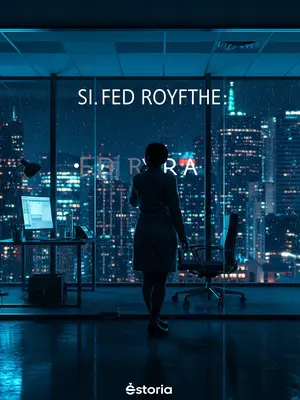Chapter 3: The Clerk’s Office and Goodbye
2.
That afternoon, Derek really took me to the county clerk’s office.
The building smelled like old paperwork and nervous sweat. The waiting room chairs were that sticky blue plastic every DMV seems to have, and someone had left a half-finished bottle of Mountain Dew on the floor. People shuffled in and out—newlyweds clutching hands, tired couples standing as far apart as possible. I could taste the stale air, feel the sharpness of the fluorescent lights buzzing above my head.
He was in a great mood the whole way there.
He drummed his fingers on the steering wheel, humming along to the radio. Every stoplight seemed to last forever. I stared out the window, watching the world blur by in streaks of green and gold.
He kept asking me where I wanted to go for our third anniversary.
He spoke like nothing was wrong, as if we were planning a weekend getaway instead of splitting our lives in two. The irony twisted in my chest.
Derek and I grew up together; this was our third year of marriage.
We had the kind of history you only get when you’ve shared birthday parties and lemonade stands, Homecoming dances and late-night drives to Sonic. Our marriage felt both inevitable and impossible.
“How about Prague?”
He grinned at me, like a salesman closing a deal.
“You’ve wanted to go to Prague to feed the pigeons since you were seven.”
He remembered, which almost made it worse. It felt like a cruel joke—the way he could still reach back and pluck memories from our childhood, toss them out like souvenirs from a trip I never took.
He got out, opened the car door, and helped me unbuckle my seatbelt.
His hand brushed my arm, warm and familiar. I flinched, just a little. The street was loud with traffic; the sun glinted off parked cars. For a moment, we looked like any other couple, just running errands together on a Tuesday afternoon.
“Tsk, why have you been crying?”
His fingers traced the corner of my eye, gentle but detached, as if he was wiping dust from a countertop rather than tears from my skin.
He frowned and rubbed his fingertip at the corner of my eye.
The gesture made my stomach twist. I remembered all the times he’d done that before—at graduations, on birthdays, after too many glasses of wine. Now it felt rehearsed, impersonal.
“I told you, it’s just an act. She’s just a little bird. I’m just curious when she’ll finally give in.”
His words felt slippery, like he was talking about someone else’s problem. The canary screeched in my mind again, trapped and furious.
As he spoke, something fell out of his pocket.
A box of condoms.
The cardboard hit the curb with a muted thud. It sat there, garish and out of place, like a prop that belonged in a different scene.
Derek coughed lightly and touched his nose.
His cheeks colored, but he just shrugged it off with a cocky half-smile. "Whoops," he said, but didn't really mean it.
He didn’t explain.
There was an awkward pause, the kind that lingers and grows, but he just tucked the box away and steered me inside.
He took me into the county clerk’s office.
The linoleum floor squeaked under our shoes. Couples waited in hard plastic chairs, some arguing in whispers, some holding hands with knuckles white. The clerk barely glanced at us, her glasses perched low on her nose.
Everything went smoothly.
The paperwork was quick, the questions routine. It was clinical, impersonal, the way the DMV feels on a slow day.
I have aphasia. Sometimes, when I get nervous, the words just freeze up—like my brain hits pause and my mouth forgets the script.
My mouth worked, but the words caught in my throat like peanut butter. Sometimes when I’m nervous, nothing comes out at all. I could feel the pressure building behind my tongue, every muscle tight.
I often can’t speak in front of strangers.
In line at the bank, at the doctor’s office, even on the phone with the pizza guy—it happened more than I liked to admit. Today, the words just vanished.
But I can nod and shake my head.
That was enough. I made it through childhood on gestures alone. Nodding was safer than trying to say something and failing.
“Is this a voluntary divorce?”
“Yes.”
I nodded.
“Confirming emotional breakdown?”
“Yes.”
I nodded.
“One-month waiting period. Come back in a month.”
Derek took the receipt.
He grinned, folding the slip and tucking it into his wallet next to a dozen old business cards. I watched his hands, the way his fingers lingered on the receipt like it was a ticket to a show he couldn’t wait to see.
Before leaving, he snapped a photo, lowered his head, and sent a message.
His phone buzzed; he barely looked up, thumbs flying. I watched the little blue light on his screen blink twice before he pocketed it again.
My message came too.
As always, from Madison.
Her name popped up with a little heart emoji, taunting me. I almost dropped my phone.
Derek sent her the photo of the receipt, with an added line:
[Satisfied? Clean up and wait for me tonight.]
His words made my skin crawl, but I couldn’t look away. It was like rubbernecking a car wreck—awful, but impossible to ignore.
I tapped her profile picture and blocked her.
The relief was instant—a small act of rebellion. I exhaled for the first time all day. The power to sever that tie, even virtually, felt like a thread snapping inside me.
Just as I finished, a ticket confirmation text came in.
The vibration startled me. My thumb shook as I opened it, and for a moment, the world seemed to pause—like the universe was waiting to see if I’d really go through with it.
At the same time, a Facebook Messenger ping:
[Ticket bought. One month from now.]
[See you in Paris.]
I stared at the words, the blue check marks, the sense of something new waiting just beyond the airport security line. My chest tightened—not from fear, but from hope.













